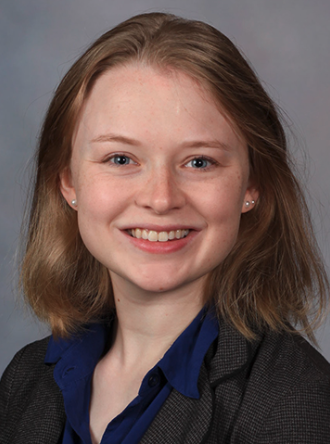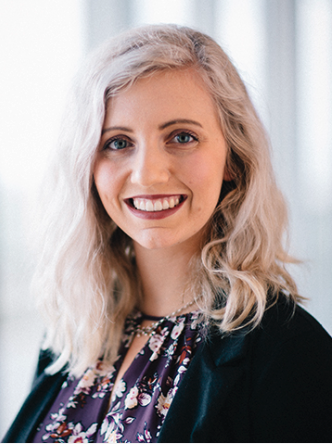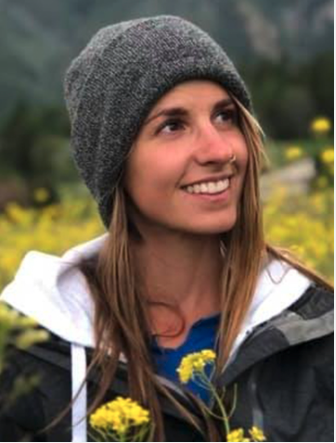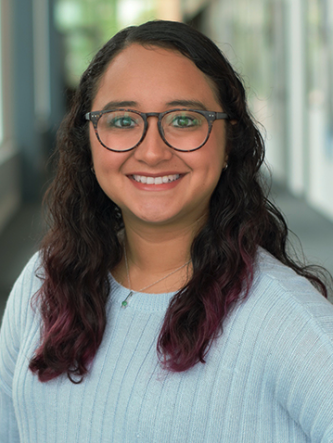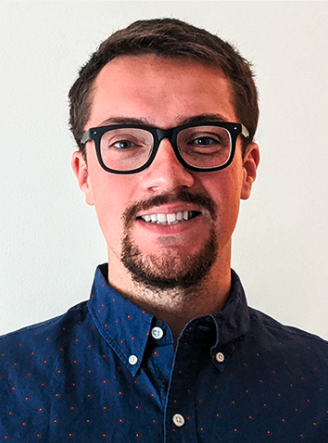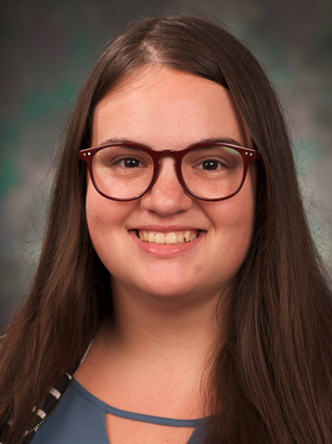Evan Doyle, ‘13
Public Policy and Global Health
Major: Bachelor of Science in Health Sciences
Hometown: Canton, SD
Why did you choose to come to UMR? My cohort was the first batch of undergraduates to undergo the integrated curriculum and innovative approaches to teaching and learning, which factored heavily into my decision to come to UMR. The opportunity to be part of such a new and unique undertaking was too good to pass up.
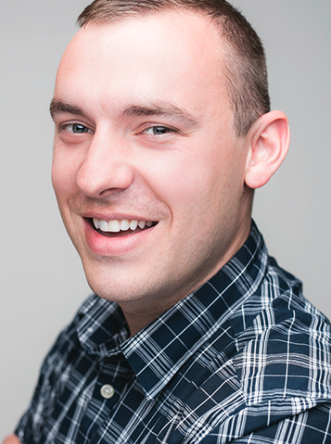
What did your Capstone experience at UMR involve? For me, the Capstone experience was an open-ended opportunity to explore anything and everything I was interested in outside of the classroom. I spent four months in Ecuador conducting a qualitative research study on barriers in access to health care services. These interviews with health care workers, along with the time spent volunteering in clinics across the country, provided me with an in-depth perspective on how a nationalized health care system functions. I then spent a National Student Exchange semester at Queens College and pursued two part-time internships in New York City. The first was with the Monitoring & Evaluation (M&E) Department at Latino Commission on AIDS, a nonprofit that provides health education, HIV prevention services, capacity building, advocacy and health behavioral research for Latino communities. During this time, I evaluated the impact of a city-wide outreach campaign through bilingual street-intercept surveys and cross-borough data analysis. My second internship was with the Global Health Program at the Council on Foreign Relations, an independent, nonpartisan think tank. My job was to research and draft briefs on dual use research of concern and climate change’s effect on global health in preparation for upcoming roundtable meetings and publications by the Senior Fellow, respectively. I also tracked and maintained an online interactive map of international vaccine-preventable disease outbreaks, which is still active and currently run by Gavi, the Vaccine Alliance.
How did your Capstone experience prepare you for your future in what you’re currently doing? Through my Capstone, I discovered my career interests lay at the intersection of data, policy and international travel. In all honesty though, a series of ~4 month experiences were never going to provide the technical competencies I needed to land my dream job right out of college. Rather, aspects of each helped me learn which skills I needed to develop further to be successful. Having a preliminary understanding of M&E systems, analytical software and how data can be used to improve health programming led me to pursue a job at a research company in Saint Paul after graduating from UMR. Observing how politics and evidence are intertwined in global health policy development led me to approach my grad school thesis project pragmatically, incorporating both aspects into it design, which culminated in a national change to blood donation policy in the United Kingdom. Parsing out a foreign health system's complexities taught me that national policies don't always implement uniformly, and oftentimes the people with the best insights into breakdowns in equity are at the frontline. This perspective allowed me to add substantial value to my job after grad school, which involved assisting the Ministry of Health in Eswatini to understand and address their key bottlenecks in implementing a universal health coverage policy. Above all, I think undertaking such a diverse array of experiences for my Capstone helped me realize the endless opportunities that exist outside of 'traditional' clinical career paths. I'm grateful for using that open ended opportunity to thoroughly explore my interests, as it led me to pursue roles later on that I didn't even know existed during my time at UMR.
What are you currently doing? I work for the Global Fund to Fight AIDS, Tuberculosis and Malaria as a Strategy Development Officer based in Geneva, Switzerland. The Global Fund is a multilateral partnership made up of governments, civil society, technical agencies and the private sector, which mobilizes and invests more than $4 billion a year to support health programs run by local experts in more than 100 countries. The Global Fund Strategy is a multiyear road map for the partnership’s future, setting out priorities for how we can accelerate progress against the three diseases and improve global health. My team is tasked with leading the process to develop our next strategy, which will begin in 2023. In addition to my BS in Health Science from UMR, I also hold an MSc in Public Health from the London School of Hygiene and Tropical Medicine.
Audra Gaikowski, ‘20
Public Policy and Global Health
Major: Bachelor of Science in Health Sciences, Minor: Public Health
Hometown: West Salem, WI
Why did you choose to come to UMR? Originally I planned on going Pre-Physician Assistant (PA) route and UMR seemed like the perfect place to focus on my studies necessary for PA school.
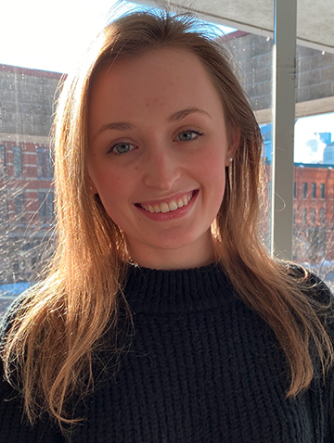
What did your Capstone experience at UMR involve? For my Capstone I spent nine months in Quito, Ecuador doing the Minnesota Studies in International Development Ecuador program with an emphasis in public health. While in Quito, I spent three months in the classroom, taking Spanish, history and public health courses. I then spent two months doing an internship with an organization called la Secretaria de Salud where I worked on calculating and analyzing various adolescent and maternal health outcomes. Lastly, I spent four months conducting an independent research project with guidance from my internship site and school on the topic of teenage pregnancy, the social determinants of health that influence teenage pregnancy and the prevention methods being done for teenage pregnancy in a neighborhood called Cotocollao, a neighborhood with the highest teenage pregnancy rates. All of this culminated in a 57-page research report. For my last of three semesters in Capstone, I was at the University of Minnesota Twin Cities campus working towards a minor in public health.
How did your Capstone experience prepare you for your future in what you’re currently doing? My Capstone experience gave me the opportunity to practice my second language (Spanish), in which I am now proficient. Also, it gave me the opportunity to conduct independent, qualitative research, which allowed me to understand research from a very different perspective than what I had previously been exposed to. My experience abroad also deepened my passion for women's health and health equity, which is a passion that I carry to this day. This, combined with my classroom experience on the Twin Cities campus, prepared me for my next step: graduate school.
What are you currently doing? I currently work as an Assistant Clinic Manager at the Epidemiology Clinical Research Center (ECRC). The ECRC is located within the Division of Epidemiology and Community Health at the School of Public Health, which is also where I attend graduate school. I am a first-year student in the Maternal and Child Health Masters of Public Health program.
Sami Johnson, ‘18
Public Policy and Global Health
Major: Bachelor of Science in Health Sciences
Hometown: Eden Prairie, MN
Why did you choose to come to UMR? From my first college tour as a high school senior, I fell in love with the integration of health care that ran through the veins of UMR. Every course provided scientific perspective despite representing different subjects of learning. I loved the possibilities that the proximity to Mayo Clinic provided and was awed to work in collaborative labs in my second year. UMR facilitated health care-oriented experiences that I would not have had at other universities.
What did your Capstone experience at UMR involve? My Capstone was focused on thriving within chaotic situations and using this to my advantage when pursuing emergency medicine as a career. It involved using my eclectic range of activities to exemplify my journey, including medical scribing, ballroom dancing and becoming an EMT. Through these activities, I was able to show how I capitalized upon my wide range of passions to prepare for medical school and onward.
How did your Capstone experience prepare you for your future in what you’re currently doing? The pandemic has changed the shape of health care. It’s been a humbling experience to see the devastating effects that a disease can bring. What I’ve continued to learn from my Capstone experience is to advocate for myself and patients in order to organize the oftentimes chaotic life of emergency medicine.
Is there a certain instructor that greatly impacted your time at UMR? Every UMR instructor provided the framework of my knowledge, but I would not be the person I am today without Yuko Taniguchi. Professor Taniguchi taught me to seek experiences that exercised my passions, how to maximize opportunities and how to personally reflect upon how these opportunities affected me. She was my mentor while I was the undergraduate academic assistant with the Capstone preparation course and she remains my teacher and role model in life. My time at UMR and my life after graduation would not have been as fulfilling or rewarding without her guidance.
What are you currently doing? I am a medical scribe in the Saint Mary's Emergency Department and part of a specialized team of medical chart auditors who maintain billing and coding standardization across Mayo Clinic Health System. I am working towards my Master’s in Public Health which became particularly important to me when the pandemic started. Concurrently with work and school, I’m working on applications to medical school for the 2022 cycle including studying for the MCAT. Thanks to UMR I’m always looking for new opportunities to integrate my many passions and chase my dreams!
Cassie Kersten, ‘16
Public Policy and Global Health
Major: Bachelor of Science in Health Sciences
Hometown: Nerstrand, MN
Why did you choose to come to UMR? I started at UMR as a PSEO student during my senior year of high school. I wasn't originally planning to stay for the entirety of my degree, but after experiencing the unique learning environment and engaging with the faculty for a year, I couldn't imagine leaving!
What did your Capstone experience at UMR involve? My Capstone revolved around comprehending and communicating scientific ideas. I did this through coursework, working as a teaching assistant for science classes, working on a research project in gene therapy at Mayo Clinic with Dr. Ikeda and working on a research project in biochemistry education with Dr. Terrell.
How did your Capstone experience prepare you for your future in what you’re currently doing? My Capstone experience taught me the importance of contextualizing science and always keeping the bigger picture in mind. While conducting rigorous, methodical research is incredibly important, it is equally important to be able to communicate the goals and results of your project in order to make the desired change. This is especially important to remember in public health, where much of the research can make a major impact on human health if approached and communicated correctly.
What are you currently doing? I completed my Master of Public Health in Global Epidemiology at Emory University in May 2020. After supporting COVID-19 response at Georgia Department of Public Health (GDPH) and the Centers for Disease Control and Prevention (CDC), I began a new position as a Senior Consultant at Booz Allen Hamilton in the health market. My current project team supports a comprehensive medical readiness program for Department of Defense clients. As a public health subject-matter expert, I facilitate and assist in the development of trainings and exercises related to public health, disaster mental health, patient decontamination, and more. I also volunteer with the Atlanta-area Medical Reserve Corps (MRC) to support COVID-19 vaccination efforts.
Was there a faculty member that positively impacted your time at UMR and how? UMR faculty members are truly the best, and it is impossible to just select one who has made a large impact. Dr. Terrell was a fantastic research mentor who demonstrated what a strong female scientist looked like and pushed me to become one myself. The biology faculty, particularly Prof. Haines, Dr. Metzger, and Dr. Olson, made me feel like family and I knew that they had my back. Prof. Bright and Prof. Henderson Vazquez both gave great advice and encouraged me to follow my career goals, even when they were off the beaten track.
Anjelica Montano, ‘15
Public Policy and Global Health
Major: Bachelor of Science in Health Sciences
Hometown: Palisade, MN
Why did you choose to come to UMR? When I was studying in high school, I found myself interested in the study of the human body and sought to become a General Physician (GP). Given that I was from a small town, I decided that it would be best to practice in a rural area where you would be able to form strong relationships with patients and their families. I was looking into the University of Minnesota school and decided upon the Rochester campus because of its focus on medicine, integrated program, affiliation with the Mayo Clinic, and the intimacy that came from studying at a small university. The close-knit network between staff and students was the most unique aspect of UMR and the biggest factor in my decision to attend the university. I did not find any other university that offered a network and support for every student and had the rigorous program geared towards medicine. I thought that UMR was the perfect school for my transition from high school to college and would prepare me to become a health professional.
What did your Capstone experience at UMR involve? My Capstone for UMR involved two different study away programs and a semester that included courses at the University of Minnesota TC campus. During my time at UMR I shifted my focus from being a medical practitioner, to studying different forms of health, well-being, and medicine. I first traveled to Japan for a May term led by Yuko Taniguchi and James Ford where I studied Philosophies of Wellness and Holistic Healing. My travels then took me to India where I was a part of the Minnesota Students International Development program which pushed each student to apply a global perspective, to think holistically, and to acknowledge and seek to understand further diversity and culture. This program encouraged students to appreciate other lines of thought and definitions of knowledge rather than thinking of the linear western approach as the leading method. The experience shifted my focus from the western system of medicine and altered my career path ideas. When I returned to the United States, I decided to have my last semester expand my range of health perspectives further by taking courses through the Center for Spirituality and Healing through the University of Minnesota Twin Cities campus; including Ayurveda Medicine, Walking into Wellbeing, and People, Plants, and Drugs, a course based on ethnopharmacology. My experiences in that year altered my focus from a narrow field to a broad scope and harnessed in me the importance of both. Every field and practice have their purpose but becoming too specialized can detract from one’s ability to see the “big picture” and realize the interconnectedness of everything in our lives. I posited that as health professionals, we must be aware of the importance of perspective, its impact into our decisions, and its translation into the treatment of others in our work. If we are to better serve people, we should invest time into understanding who we are treating, why they are there, and what route would create the greatest positive impact on their lives.
How did your Capstone experience prepare you for your future in what you’re currently doing? My Capstone experience prepared me for the next step to take towards where I am today, which was to serve in the Peace Corps in Madagascar. I was a Healthcare Advisor during my time there and was better able to integrate and adapt to the culture because of my Capstone experiences abroad and courses pushing the expansion of my perspectives of life, well-being, and health. During my service, I was able to work alongside Non-Governmental Organizations (NGOs) and Non-Profit Organizations (NPOs) covering topics within Maternal Childhood Health and Nutrition (MCHN) and Water Sanitation and Hygiene (WASH). I decided that I wanted to work to improve the needs assessments conducted prior to the implementation of projects in order to include more of the local or indigenous population’s perspectives into the actions necessary in promoting their development and to do so, I would have to return to the United States and acquire a masters degree.
What are you currently doing? I am attending the University of Arizona in Tucson and working towards a Master of Development Practice degree with a focus on health interventions.
Aracely Montecinos, ‘16
Public Policy and Global Health
Major: Bachelor of Science in Health Sciences
Hometown: Ramsey, MN
Why did you choose to come to UMR? I chose UMR because of its focused curriculum, small school size and unique opportunities for students starting right at freshman year.
What did your Capstone experience at UMR involve? My Capstone experience involved my two main focuses of public health and mortuary science. I took courses at the University of Minnesota Twin Cities and had the opportunity to live and work in Minneapolis during my fourth year while taking a wide variety of Public Health and Mortuary Science courses. My Capstone allowed me to demonstrate to professionals and peers how we can learn so much about bettering our lives and communities by understanding death, the dying process and end-of-life care.
How did your Capstone experience prepare you for your future in what you’re currently doing? My Capstone was an excellent stepping stone for my current career in Organ, Tissue and Eye Donation with LifeSource. It allowed me to become better educated about the diverse communities I serve and how to effectively communicate with them about all aspects of donation and how it impacts their community.
What are you currently doing? I completed a Master of Public Health in December 2018 from The Chicago School of Professional Psychology. I’ve been working at LifeSource for three years now and was recently promoted to a leadership position in my department that allows me to continue the mission of educating the communities about organ, tissue and eye donation. I serve on several committees including a Diversity, Equity, and Inclusion committee which allows me to use my public health education to not only better my company, but the diverse community we directly work with through donation.
Glen Morris, ‘17
Public Policy and Global Health
Major: Bachelor of Science in Health Sciences
Hometown: Medford, MN
Why did you choose to come to UMR? I was drawn to UMR for its connectedness to the community and to the advancement of health sciences. UMR fosters an environment for advanced higher education and a place for health science connections to be learned and discovered. I also had a sibling who completed UMR's Bachelor of Science in Health Professions track and was sold on the individualized academic learning environment she experienced.
What did your Capstone experience at UMR involve? My Capstone experience was "Connection Human Health to our Environment" and it involved various internships at the USDA, Florida Department of Health, and Seaworld. I also was taking some academic coursework at the University of Minnesota Twin Cities campus for a minor in Environmental Science, Policy, and Management.
How did your Capstone experience prepare you for your future in what you’re currently doing? My Capstone experience prepared me to pursue and apply my health science degree to the many areas it encompasses. I structured my Capstone as a stepping stone to the next step of my journey; which has allowed me to branch into the different areas of health sciences.
What are you currently doing? I am currently pursuing a masters and PhD as a Ross Fellow at Purdue University, in the department of Agricultural Biology and Engineering. My work will focus on agricultural health and safety, specifically focusing on preventative health measures in rural agricultural communities.
Ashlyn Stenberg, ‘19
Public Policy and Global Health
Major: Bachelor of Science in Health Sciences
Hometown: East Troy, WI
Why did you choose to come to UMR? The opportunity to learn in a space that operates outside of the standard lecture model, honors different learning styles and has a tight-knit community feel was really exciting to me.
What did your Capstone experience at UMR involve? My Capstone started with becoming a CDC Public Health Scholar. I received public health leadership training that focused on maternal and child health, social determinants of health, eliminating health disparities and developmental disabilities alongside a cohort. I also completed two semesters of coursework at the UMN Twin Cities campus focusing on social determinants of health and intersections of race, class, gender and sexuality.
How did your Capstone experience prepare you for your future in what you’re currently doing? My Capstone prepared me to think on a systems-level. It also gave me a better understanding of what health is and how much social, environmental and historical factors determine the health of our communities and overall well-being. I would also like to say a few words of appreciation for Dr. Osiecki and Dr. Barnett whose support and expertise also greatly influenced me as a learner.
What are you currently doing? I work on the Community Powered Parks team at the Trust for Public Land where I coordinate park projects. The most exciting project I am working on is the Green Schoolyards Project which transforms Minnesota schoolyards into life-giving, park-like spaces that are created by and for students and the surrounding community.
